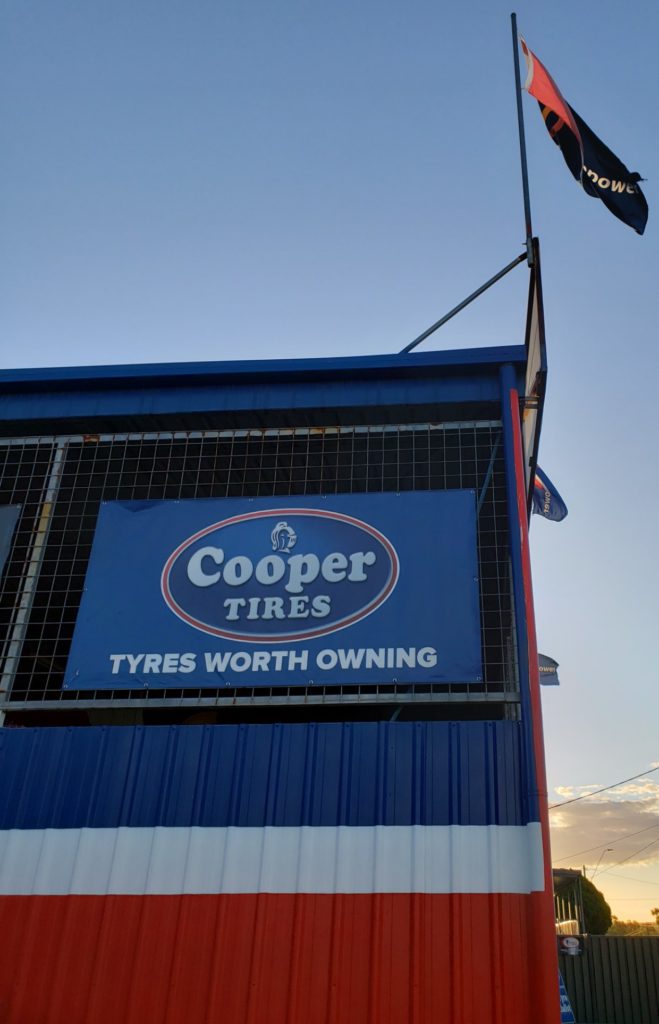
My first formal lesson had come while visiting The Outback Steakhouse in Atlanta, Georgia several years ago. They served cheese fries as a signature appetizer, and the drink coasters all had the words “CHAZE FROYS PLAZE” printed on them. This was to teach guests how to order in Australian because you would get them at half price if you did. It was also the only Outback Steakhouse I ever visited where the servers actually spoke with the right accent.
Then in 2017 I began listening to a late night radio talk show out of Brisbane called Australia Overnight. I had the idea of immersing myself in the sounds of the place I hoped to visit and its accent by listening to people speaking for several hours each day at work. It was quite an enjoyable show, largely because I liked Luke Bona, the host, but also because it was very random. Being the middle of the night in Brisbane, there was no demand that only top forty songs be played. It was somewhat free form with the subjects for discussions varying widely, although there was usually a regular trivia contest and segments played from an old radio drama based on a book with record scratches over the top. The ABC News segments often featured updates on things going on in the government using terms unknown to me (Prime Minister, Commonwealth, and parliament), while also giving sports updates on the cricket (overs, test matches, bowls) and rugby (scrum, State of Origin, line out), of which I was in complete ignorance. I also realized that I would have to get used to the metric system as well as talking about the weather in celsius. I was exposed to many new musicians and songs on the show, including Florence Foster Jenkins and John Farnham, but I was also exposed to a new variant of English itself.
I had become fairly familiar with the Australian accent thanks to the likes of Steve Irwin and Paul Hogan, but there were new words and expressions to be learned if one was to fully learn to speak Australian and sell it.
For example, one thing that would often be said to people was ‘good on ya’ as a way of expressing approval or congratulations. Also, ‘I reckon’ was the phrase of choice for stating an opinion or view instead of ‘I think’. And although Bona had what could be thought of as a more toned down and conventional Aussie accent, some of his callers had more twangy, inner Australian accents. These people would often generously pepper their sentences with many ‘naws’ and ‘yeahs’ arranged in such a way as to make knowing whether they were agreeing of disagreeing a bit confusing.
Well, Nigel, I reckon you’d better stay at home if you’re crook.
Yeah naw, mate, me wife took the ute so I can’t leave the house anyways. Not a drama. I’ll be right in a few days.
Yeah, look, good on ya, buddy. A Panadol and bottle of cordial will fix you right up.
Naw, yeah! No worries, mate. Thanks for the yarn.
Before moving on to vocabulary, a further word on the accent. Unlike the US and the UK, where there are different dialects and accents in different parts of the country, Australia doesn’t really have regional dialects as such. It was explained to me by a brother here that the outside edges of the country have a quicker, clipped sound, whereas the interior features a slower sound with a kind of drawl. To put it another way, there are three main Aussie accent categories: general, broad, and cultivated. Many of the Aussies we think of such as Hugh Jackman or Eric Bana speak with the general accent. Others, such as Steve Irwin and Paul Hogan speak with the broad accent, which is the sound most attempted by people outside Australia because it’s almost a parody of the general accent. It’s the sound people around these parts tend to have, and it can even sound a bit Liverpudlian at times (at least when Tim speaks). Finally there is the cultivated accent spoken by Cate Blanchett and Geoffry Rush, which is meant to sound more proper and is closer to a British accent.
Now on to words and phrases.
I walked into a café at the Central Railway Station in Sydney and was asked ‘How ya going?’ which threw me a bit. I answered ‘Good’, realizing that not only was this the incorrect response grammatically, but that I didn’t actually know what the correct response was to that question at all. (Well? Fine?) I then asked for a coffee and a sandwich.
“A long black or a flat white?” asked the barista.
Again I had no idea what these things were and had to ask for clarification. She explained and then I ordered a sandwich as well.
“A sanga? Which one?”
I asked if she had ham and cheese.
“Yep. A toastie?”
“A toastie?” I asked, still trying not to sound like a tourist but realizing I was quickly blowing my cover.
“Do you wanted it toasted?”
“Oh!” I said as though had simply misheard what she’d asked. “Yes, please”.
“Okay. That’s one flat white coffee and a ham and cheese toastie. Right. That’ll be sixteen dollars twenty”.
I did a mental spit-take, regretting only that I hadn’t been actually drinking at that moment, so that I could have atomized a mouthful of coffee spectacularly into the air. (Doing an honest to goodness, spontaneous spit take is actually on my bucket list. As well as Willhelming while falling off of a ladder.) Then I remembered that $16.20 was only about eight dollars US and my eyes resumed their normal size and shape. The interchange was an embarrassingly “square peg” display in this “round hole” of a coffee shop, but it would not be my last.
The past tense of “How are you going”, by the way, is “How did you go” or “How you went”.
“I’m just following up on the problem you were having and I wondered how you went”.
When the Craigs came to the airport to collect me back in November, they held a sign that had said “Welcome to Straya”. I learned later that night that it is the Aussie rule to shorten words. In the US you might say something like: “I am going to the Woolworths in Biloela this afternoon to buy some chicken, sausages, and beers for breakfast tomorrow”. In Australia this becomes: “I’m goin’ to Woolies in Bilo this arvo to buy some chook, snags, and stubbies for brekky tomorrow”. I once misheard a word that I thought that was “birdos” which I assumed was a lengthened version of “birds”. A friend assured me that Aussies lengthening instead of shortening words would be a sure sign that the end times were upon us. However, the term ‘push bike’ seems to be the only exception to this otherwise infallible rule, as it actually lengthens the word ‘bike’.
There are many more examples of this truncating phenomenon, but here are a few I’ve heard so far:
Truckies – truckers
firies – firefighters
bikies – bikers
skippies – kangaroos
Rockie – Rockhampton
Brisi – Brisbane
Bundy – Bundaberg
Barbie – Barbecue
Mozzie – Mosquito
Tradie – Tradesperson
Cong -congregation
Servo – Service station
Brekky – breakfast
Maccas – McDonalds
And then there were the words that were altogether different from existing American names for the same things.
For instance, I was surprised to sit down at a Chinese restaurant not long ago and find “bugs” on the menu. This brought to mind the same image you likely imagined just now, but in fact it’s another name for Flathead Lobsters, known colloquially as Moreton Bay Bugs. Another time I went into the local hardware store and asked if they had any “quarter round”. A quizzical look and a brief game of Catchphrase later, and I was told that here it’s called “quad”. Then there was the sign affixed to the local servo (service station) which read “Cooper Tires: Tyres Worth Owning”. When I arrived at the Queenslander, Tim handed me a comforter and a folded blanket which he said was a “doona cover”, after which I sheepishly asked Khiara what a doona was. It’s a down comforter with a giant pillow case cover to put it in. Here are some other words for common things:
Crook – sick
dear – expensive
chips and biscuits – fries and cookies
bottle shop – a liquor store
Esky – cooler (Though I prefer the New Zealand variant “Chilly bin”)
bogan – kind of an urban redneck; often beer-loving and mullet-having.
a bit sus – suspicious
ute – pickup truck
flash – fancy
lead – extension cord
flat out – very busy
wagon – SUV
heaps – lots or ‘tons’ (‘loads’ in UK) ‘We got into a heap of trouble.’
mince – hamburger (Though having no fat added, you can’t make cohesive patties)
tea & smoko – dinner and lunch break
lollies – sweets
swag – tent (although technically a different thing altogether)
tucker – food
a yarn – an informal chat
hook in – to get into a groove with a task and work hard (?)
fair dinkum – Honestly? Or honestly. (“I only paid $15, fair dinkum”.)
Galah – a stupid person (From the beautiful, pink, and supremely idiotic “galah” birds who like to fly into the path of cars to evade them)
Aussie salute – waving away persistent flies while trying to eat. (Also “bush salute”)
pokies – slot machines
It’s cheese and chalk – two very different things
musos – musicians
bodgies & widgies – a term for guys and girls in the fifties similar to the American greasers and chicks.
And then there’s the word “bluey”. A bluey can be an equipment pack, a traffic ticket, a redhead, a heavy wool mining jacket, a blue bottle jellyfish, or a nickname for the most widely known Aussie dog breed: the beloved Blue Heeler, also known as the Australian Cattle Dog.
The word “catchment” was brand new to me. It’s an area of land that collects rainfall and feeds it back into rivers. They are often bounded by hills that help funnel the water. I was also delighted by another manner of speech I didn’t know Aussies use. Once as Khiara was leaving the Craig house to walk to her workshop she called ‘See ya’s later” over her shoulder as she left.
One final word on Australain language is what’s known as “Rhyming Slang”. One day while visiting Rocky with the Egans, Rod had said “Let’s hit the frog and toad”, and said it was an example of this phenomenon. I honestly haven’t heard any more examples, so I went and looked into it some more.
It’s most prevalent in the UK and Ireland as well as Australia, which makes perfect sense since the Europeans who came here were of both British and Irish stock originally. The process involves using two words, of which the second word rhymes with the item in question. The rhyming word is then dropped and the first word becomes the slang word. Originally the phrases “apples and pears” was used to denote “stairs”, but the pears was later dropped leaving only “apples” to be used as slang for stairs.
This was all absolutely new to me, however it does explain at least one term I’ve often used, but never knew the reason for using. Someone may give you ‘a raspberry’ by making a certain blowing sound with their tongue and lips. It turns out that this comes from the original rhyming slang phrase “Raspberry tart”. The “tart” rhymes with another word for a blowy sound that comes out of the human body. Yep. Raspberry used to mean “fart”, and thus the noise we associate with a raspberry today sounds the way it does.
A lot of this type of slang involves names, for example Bob Hope (soap), Al Capone, dog and bone, Eau de Cologne (phone), Gregory Peck (cheque), and my favorite, Reg Grundies (undies, also called “Reginalds” ). Fun Fact: Did you know that the average number of Reginalds most people own is 20?
You may recall that at the closing of the last blog I announced my desire to “Frances Bourke” (Berk, rhymes with “perk”, which means vomit) It was always my impression, thanks to Colin Hay, that men “chunder” in Australia. “Chunder” interestingly came from a contraction of the phrase “watch under”, which was often shouted by sick seafarers in bygone times when they would get seasick and stick their head out of a porthole to puke. Before doing so, they would often shout a warning to anyone below of what was about to come down. This word is probably still my favorite one, but it’s nice to know I now have the option to “Frances” as an alternative. I’m also delighted to have a new word to rhyme with “wondrous” if needed: “chunderous”.
Flummox is another favorite word, though I’m a bit flummoxed at the moment as to what to write about next time.
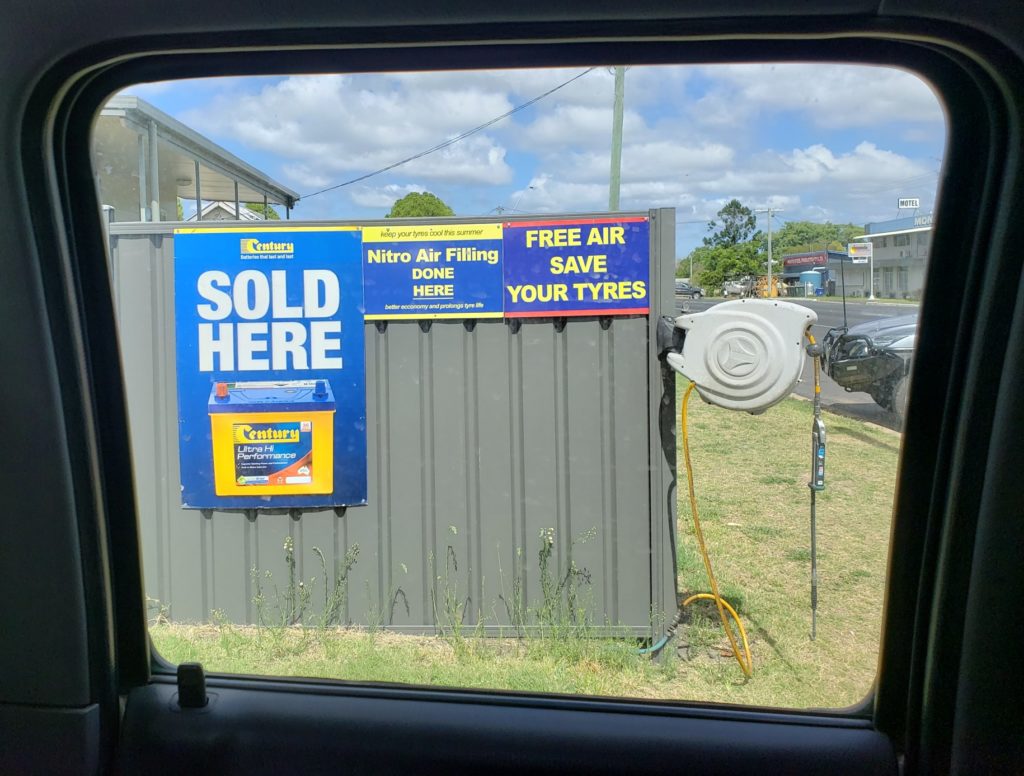
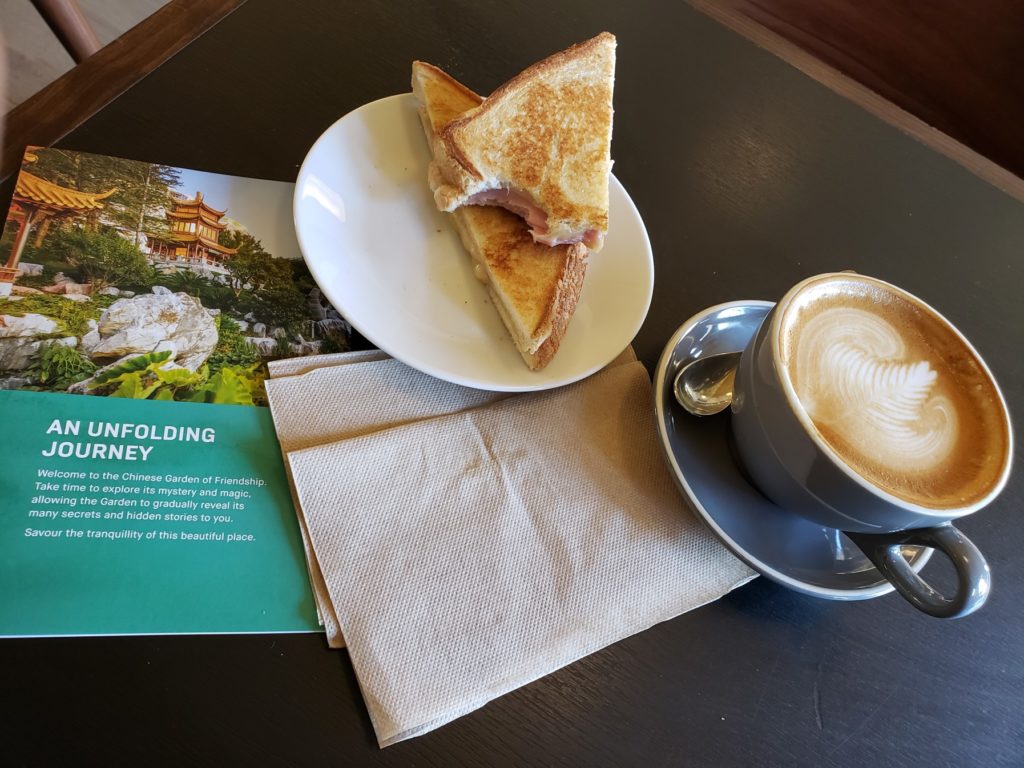
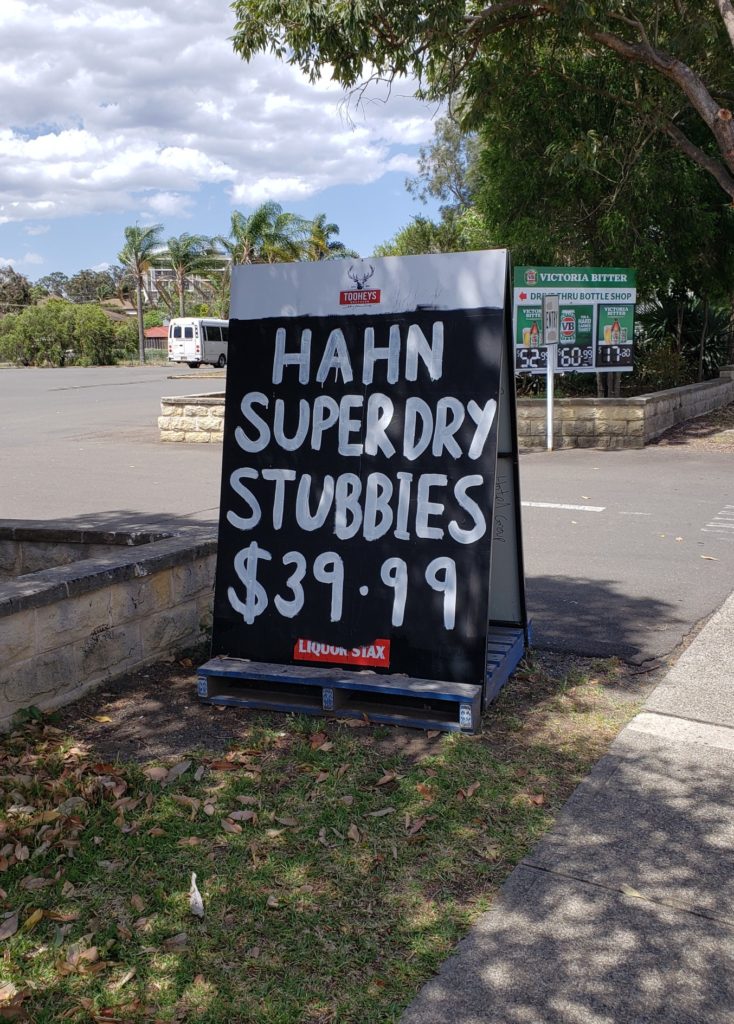
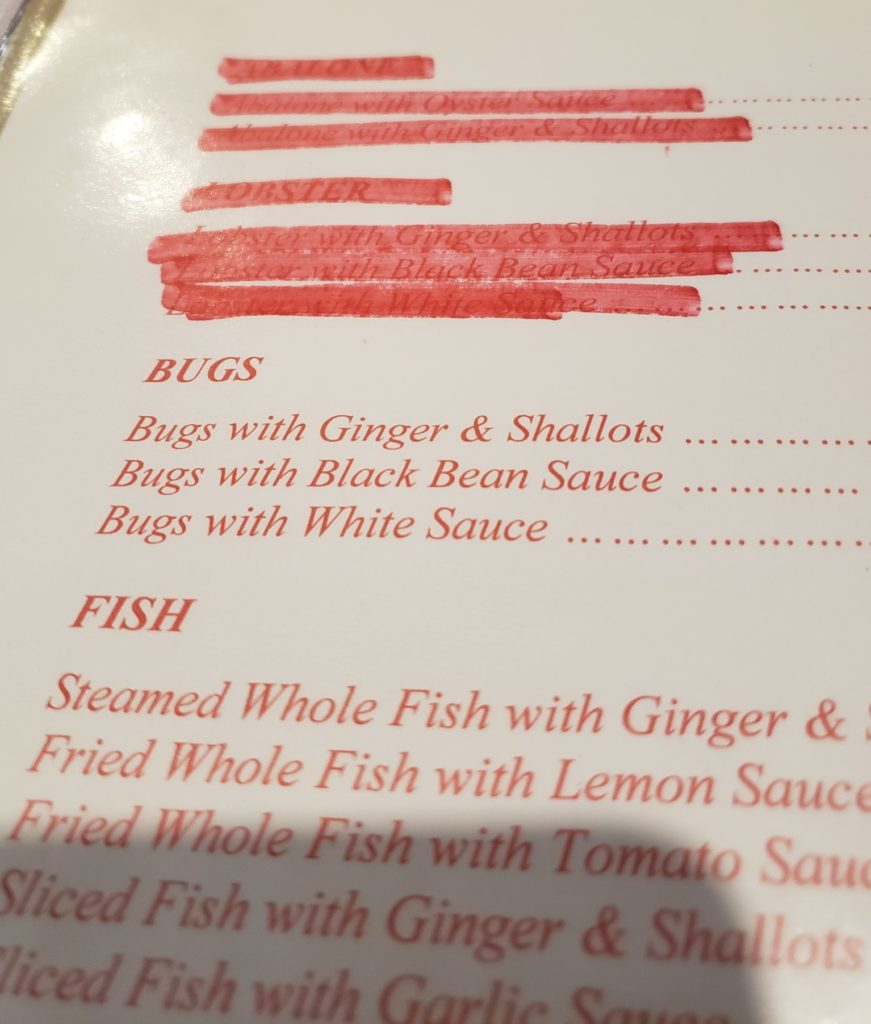
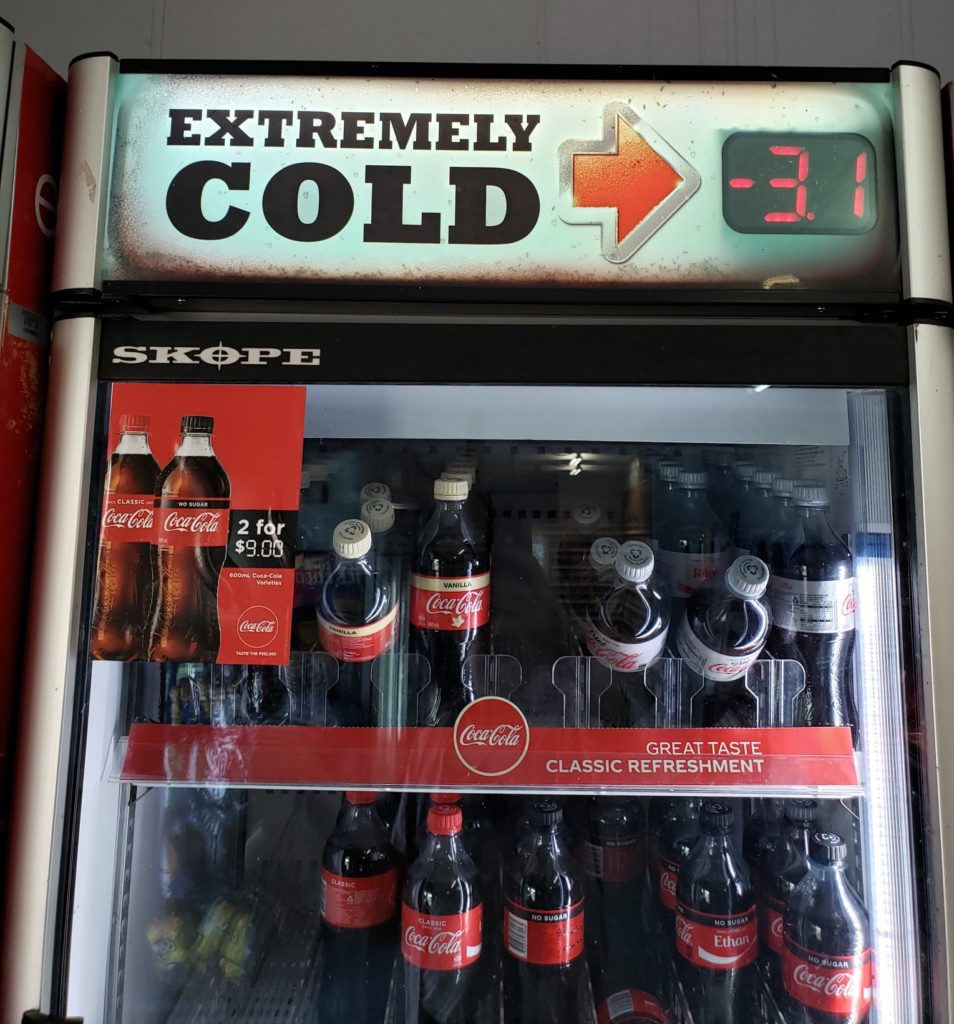
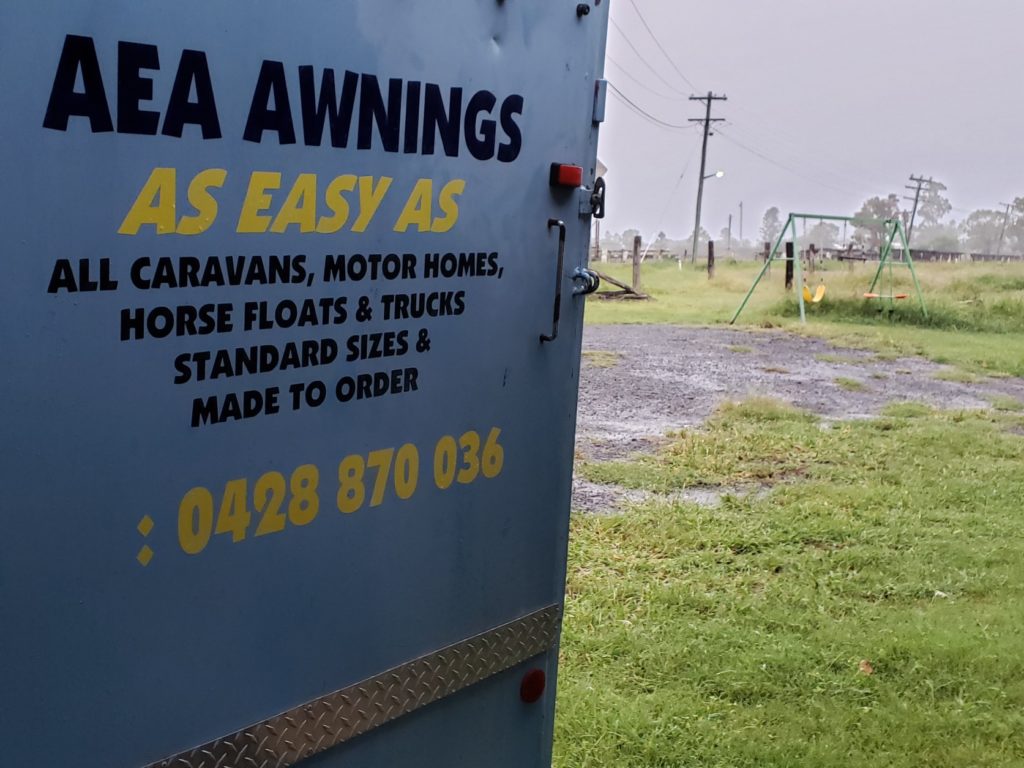
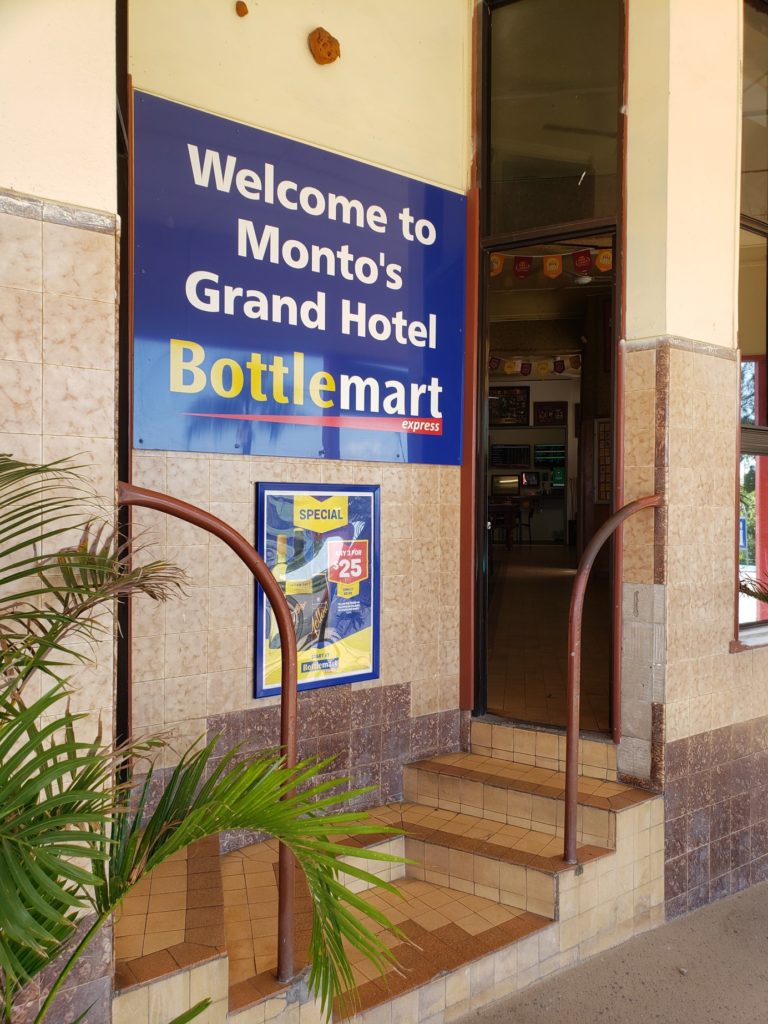
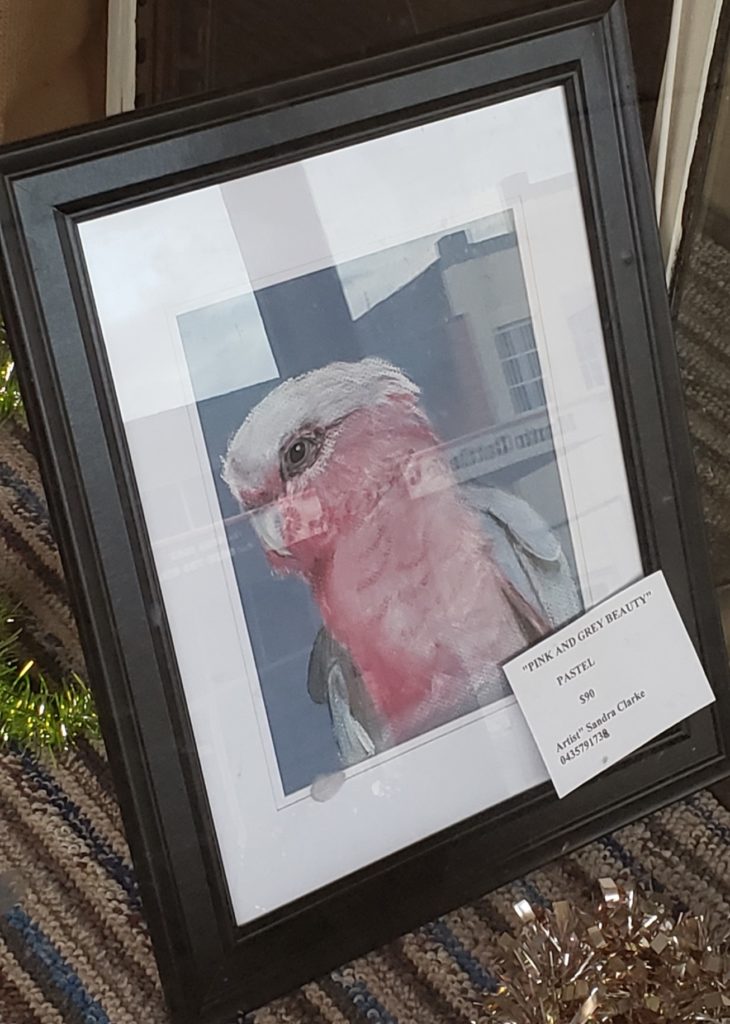
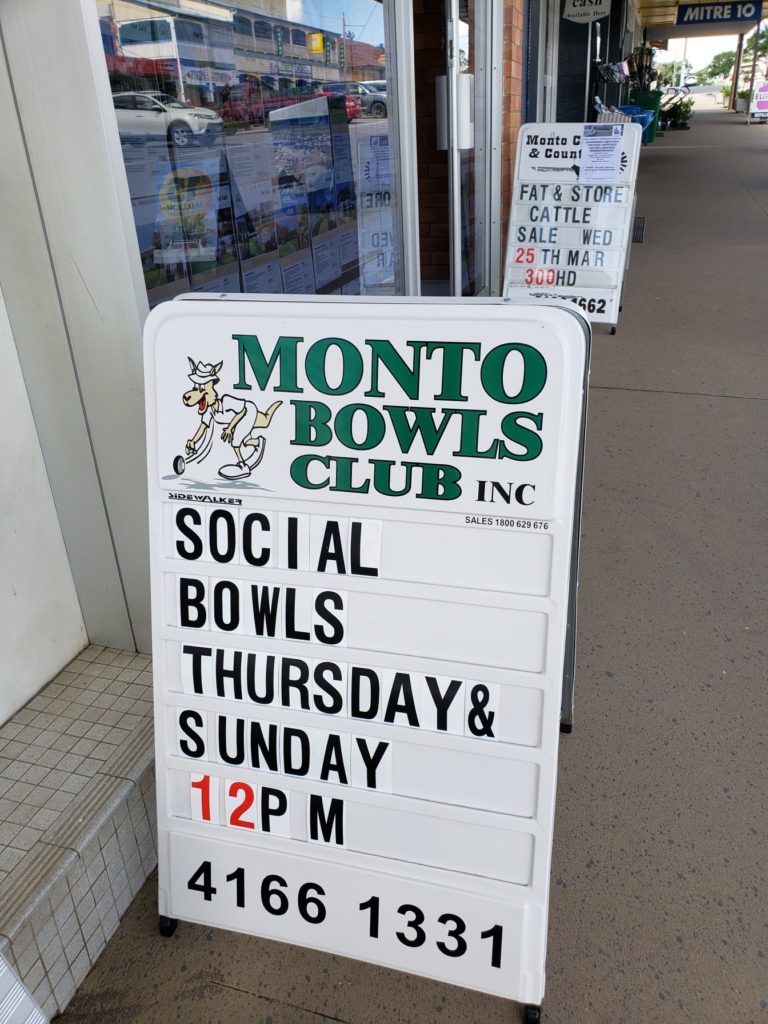
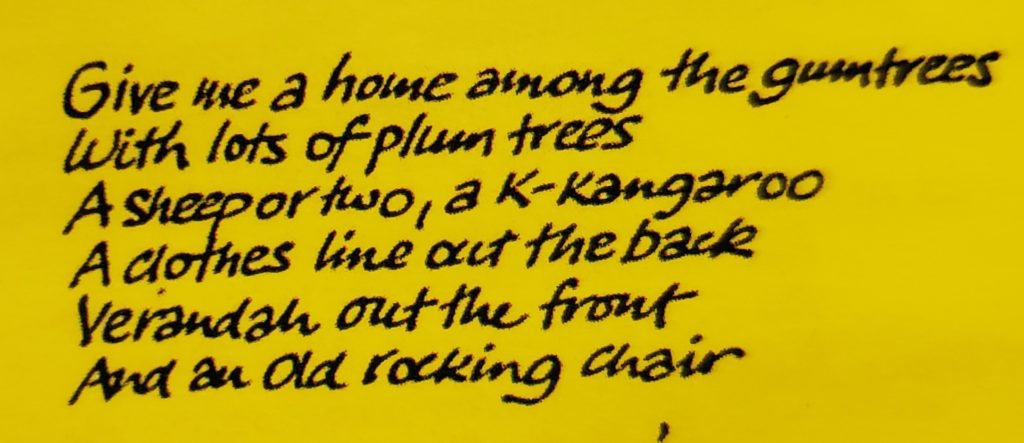

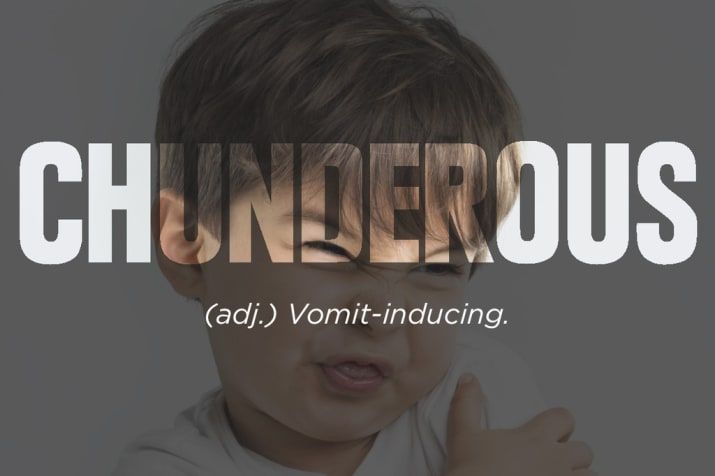
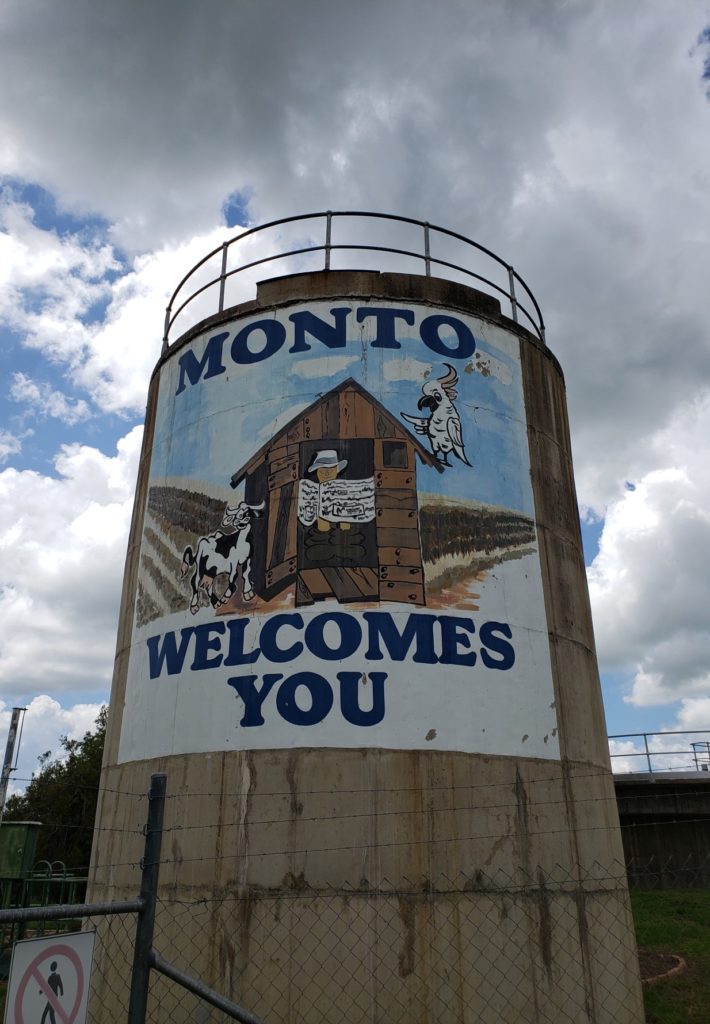
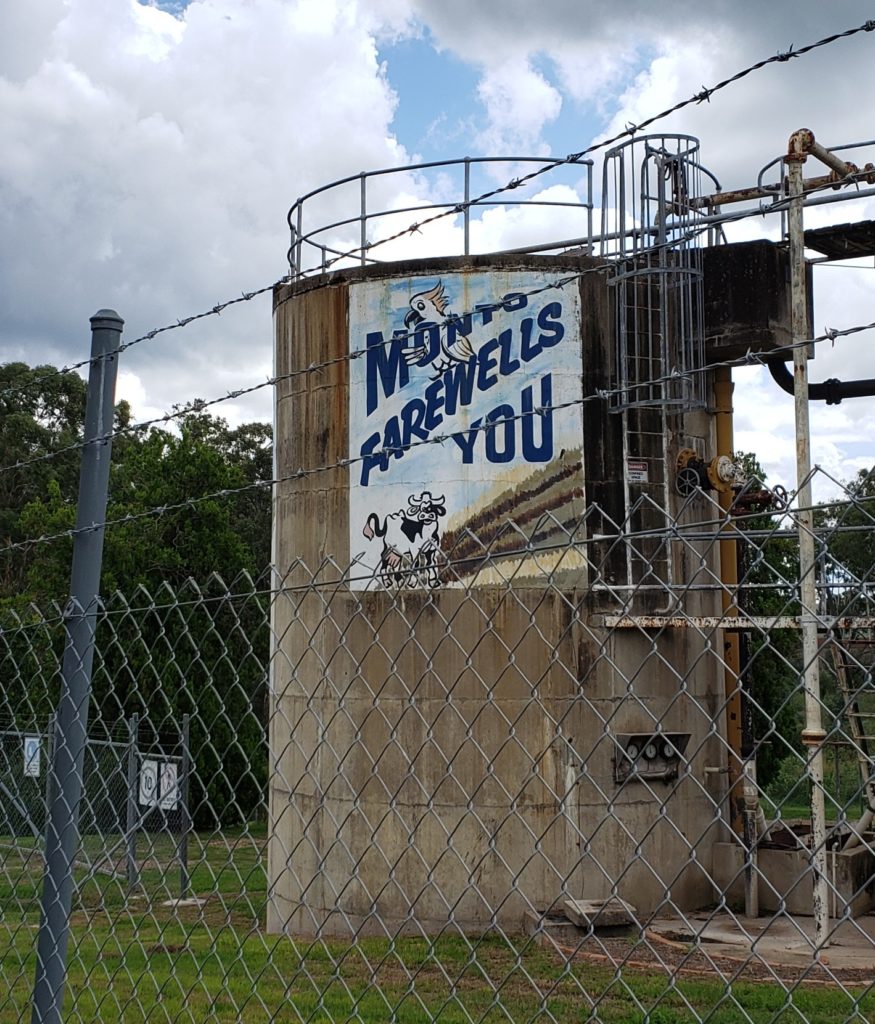
Well, my head’s spinning…